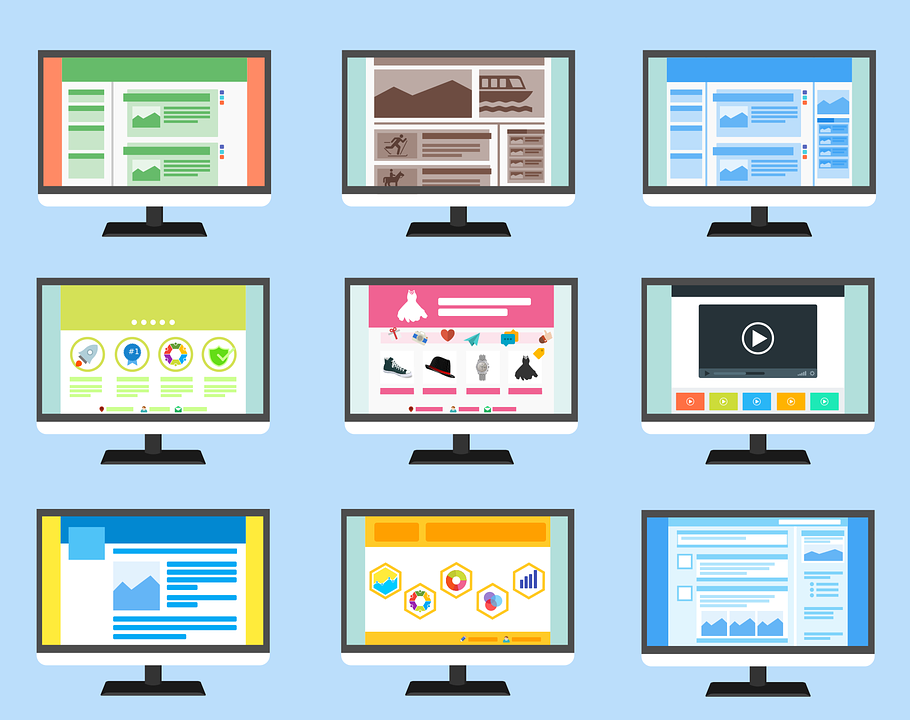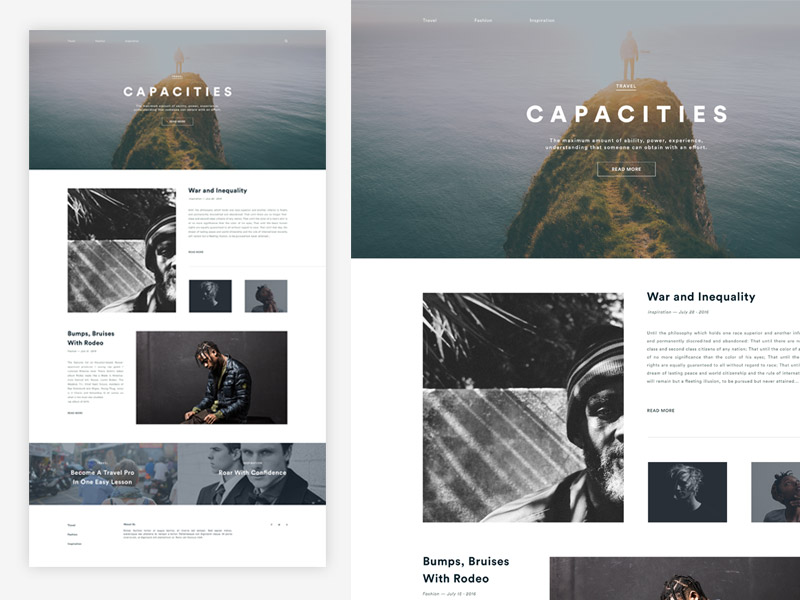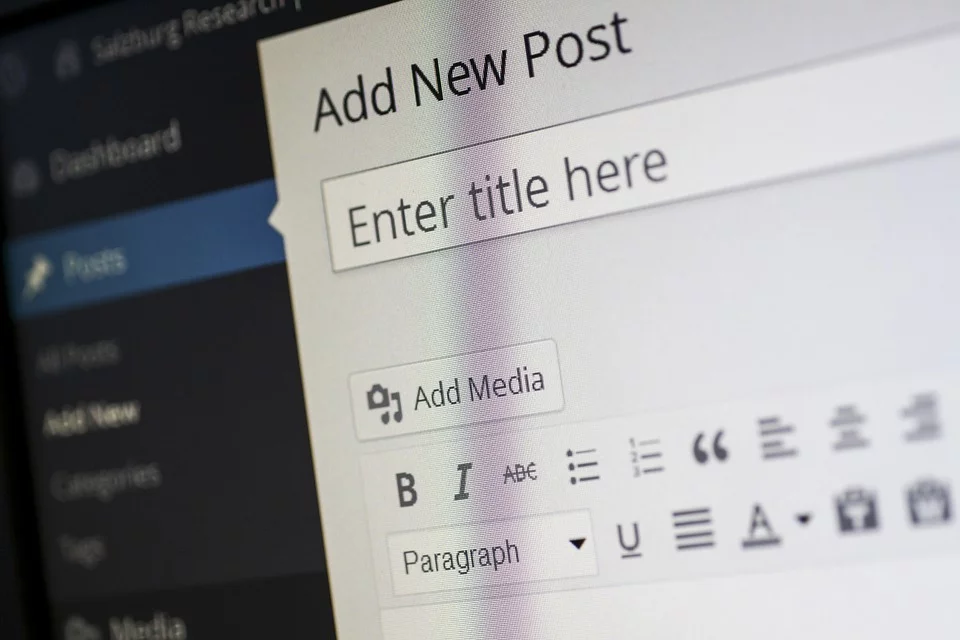
Within a fraction of a second after arriving on your site, a visitor will formulate an opinion and decide whether to continue browsing or return to Google. A clean layout, striking visuals, and the correct functionality based on your industry type will keep visitors on your page.
Not sure where to start? Your business type will help you pinpoint the platform you need, so let’s start there.
A photo-sharing site will be laid out much differently than an eCommerce site or a personal blog. Consider the style of website you need, the visual impact you’d like to make, and the ease of navigation and flow to enhance your user experience.
What Are The Most Common Types of Website Styles?
If your website falls into more than one of the following categories and you find it confusing to pinpoint the appropriate platform, simplify the process by focusing on your site’s primary function.
eCommerce
An eCommerce site is an online shop. Since they are most often used to sell goods or products, eCommerce sites have a payment integration system, either with an online payment service or a bank.
Blog or Informational
If your main goal is to share information, then a blog layout may be the best option. Many blog sites have a layout design where articles are tiled across the main page, enticing readers with striking images, catchy headlines, and strong opening sentences.

Blogs can also be a great way to share personal information and news, such as travels or weddings, with a large group of family and friends.
Online Community
Community forums and message boards are a popular way for users with common interests to exchange ideas, advice, and information. The forum can make up the entire website or just be part of a larger site. An example of a community forum would be a website where classic car enthusiasts can discuss their restoration projects.
Bio, Resume, or Portfolio
Authors, writers, photographers, and freelancers can benefit from having an online presence. Online work is much better than a paper resume or portfolio, since it can be accessed by potential employers and business partners with ease. If you’re a creative professional working as a freelancer or independent contractor, this type of site would fit your needs.
Brochure or Catalog
For businesses that offer services or products that don’t require an online purchase, a brochure website is ideal. Simply providing your customers with a list of products or services is enough for brick-and-mortar businesses that only sell on location. Dental offices, hair salons, tax preparation companies, and gyms or fitness centers all fit the brochure style.
What kind of content will your website contain? Do you want the ability to expand from where it is now? These are things to consider when choosing the type of website and platform to use based on your industry. Choosing a platform with the ability to adapt or expand will keep your options open as your business grows and changes.
The Five Most Common Types of Website Platforms
Once you’ve determined your business’s needs, you or a designer can help choose the best platform to run your site. Here are the most common website platforms.
Static, Non-Editable Brochure
Content on a “static” website stays relatively the same. Brochure-type sites work well on a static platform because an offline extension of their catalog of products or services is often all that’s necessary.
Editable Brochure with CMS
If your needs require dynamic content and the ability to update material regularly, consider a brochure site that’s run on a content management system (CMS). Many businesses enjoy the flexibility of giving any authorized user permission to edit the website easily without any special knowledge of web programming. A CMS offers that option with its user-friendly software interface.
Editable and Dynamic with CMS
It’s almost unnecessary for any business to employ a dynamic CMS-based site. With many templates and customizable options, the majority of solutions are available via CMS plug-ins. If you simply want to add, edit, and delete pages, as well as post and edit blogs, stick with a mainstream CMS.
eCommerce
The online shop is a very popular website platform. ECommerce sites can range from simple applications like Shopify to more advanced and complex options like Magento-based sites.
To choose the right option for your business, define the requirements of your eCommerce site. How many product items and product lines do you need? Are you using a fulfillment service? Are you integrating payments through a gateway such as PayPal or a banking service like Barclays?
When building an eCommerce site, user experience is important. Consider everything that would make or break a visitor’s first impression: visual impact, flow of the site, ease of navigation, and customer support. The success of an eCommerce site is largely based on its appeal and user-friendliness. Take time to fine tune your site through trial and error, and use metrics to track its success over time.
Web Application
For most businesses, a website that hosts information and collects user data and input is all that’s necessary. But if your business requirements are so advanced that none of the above platforms seem to fit your needs, you may need a web application-based site.
Advanced jobs, like accessing complex databases or managing subscription services offline, can be done via web applications. Most web applications integrate with other services to perform a host of complex functions synergistically.
Choosing the Right Website Style and Platform
There are many types of websites and platforms to use based on your industry. To narrow your choices, you must know exactly what you need in terms of function, style, content requirements, and user experience.
Consider your business’s primary function and the kind of visual impact, flow, navigation, and ease of use your visitors will want. You should also consider the ability to adapt and expand your site’s functionality as your business grows.
If you’re using a web developer to assist in your site creation, creating a website brief will help you communicate all of your needs and concerns so you can get exactly what you’re looking for.
If you haven’t done so already, take the time to develop a brand style guide. By defining your brand, you’ll know exactly what and how you want to deliver—and how to do it consistently. The more you know about your brand, the better you can choose the right product to fit your needs.







